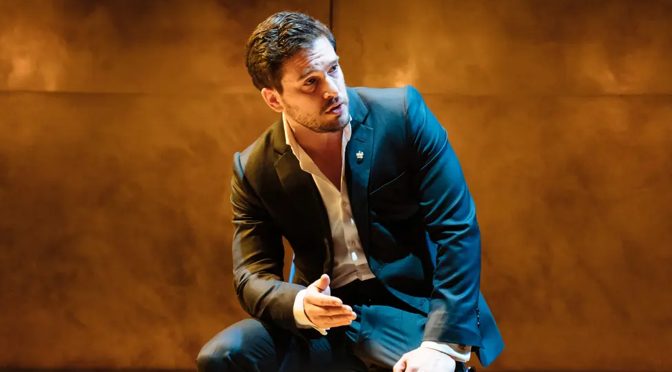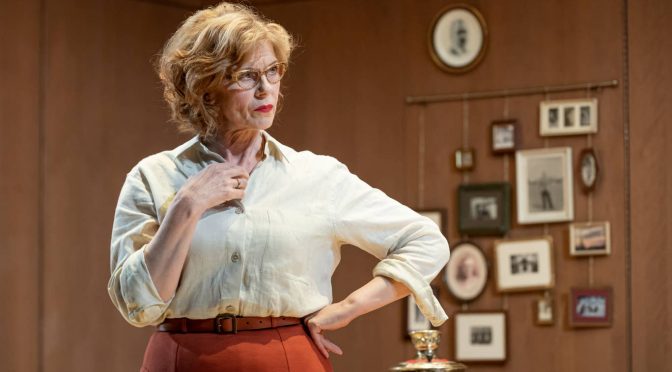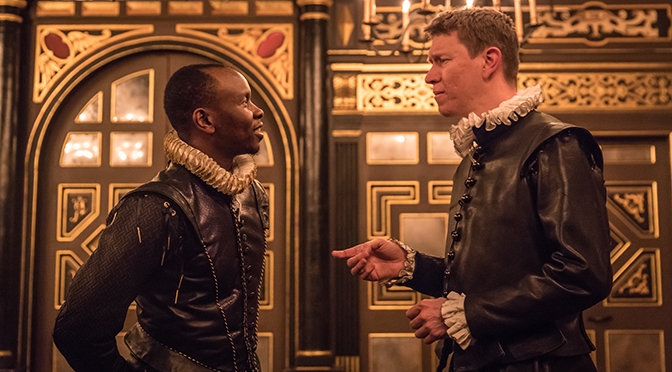A lot of people like to see a star on stage. The attraction for Max Webster’s new production of Shakespeare’s history play is Kit Harington. And the Game of Thrones actor more than earns his presumably vastly reduced wage. Although the production has its moments, Harington is the focus of these in what is an uneven affair that’s too stop-and-start to call it a success.
The large cast takes on multiple roles – which is, normally, sure to impress. And all the more so when the cast is bilingual. For Webster’s version of the play has French characters speaking French. Which makes sense – and makes a point – but creates mixed results.
The scenes in French prove a distraction, as you can’t help wondering if the performer is a native speaker. And when it comes to the different roles, it is all too obvious which one each cast member prefers. Efforts to distinguish the different parts (through accents or body language) are often poor. Kate Duchêne is a notable exception but, overall, there’s a lot of talent for little result.
The language isn’t the only distraction. Andrzej Goulding’s video work is good, but it is too big for the stage. As with Fly Davis’ impressive design, the Donmar’s intimacy is negated. Is a transfer so badly desired? A stage this small feels crowded very easily, yet Webster ignores this. He clearly just wants a bigger space. At one point we even have some marching on the spot… yuk.

Henry V is famous for Shakespeare’s appeals to our imagination. The chorus’ speeches can be inspiring, but here they are lacklustre – Millicent Wong’s delivery is strangely petulant. In attempting moments of realism, the show doesn’t deliver. I don’t think using guns helps, but fight scenes frequently look clumsy. Their direction, by Kate Waters, is, again, really for a different venue.
The production is not a failure. The addition of strong singing is revelatory – there are powerful voices in the cast that gave me goosebumps. It’s a shame that additional music (including, sigh, some Handel) is all over the place. Several scenes have a rawness which is striking (the final scene for Danny Kirrane’s particularly unappealing Pistol is notable).
Above all, Harington’s Harry is a great. The anxiety of ruling and war are etched on this king’s face, and the play between politician and regular guy is riveting. Star appeal saves the show. Which is good, but a little disappointing.
Until 9 April 2022
Photo by Helen Murray



